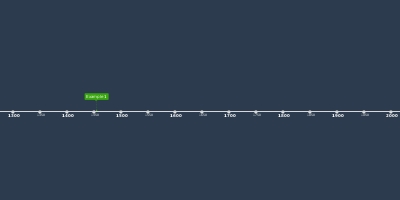Middle Ages (jan 1, 1100 – dec 31, 1453)
Description:
In General- were well-organized societies (mainly agricultural) with distinctive cultural traditions that had trade routes that supported travel, communication, and exchange
- only sporadic contact between the eastern hemisphere, the western hemisphere, and Oceania
Religion
- Beginning in the 11th century, Christian crusades against Muslims occurred
Slave Trade
- Since the 12th century, Europeans bought slaves, west African gold, and ivory from Muslim merchants with west African gold being especially important because it was the way they paid for Asian goods
- Traveling the silk road became dangerous due to Mongol empire falling (14th century), and bubonic plague (14th century) in Eurasia, so Muslim sailor brought Asian goods to Cairo, where Italian merchants purchased, and then sold them to western Europe.
- By the 14th century, certain spices from Asia were considered "expensive necessities"
African Societies
- At the start of the early modern era (1500s): African peoples lived under a variety of political organizations, clans, regional kingdoms, city-states, and large imperial states
- 8-16th century: powerful kingdoms and imperial states ruled the savannas of west Africa
- earliest ex: kingdom of Ghana originated as early as the fourth or fifth century and established its dominance in the region in the eight century by controlling and taxing the trans-Saharan trade in gold to field a large army and influence affairs in much of west Africa
- 13th century: the Mali empire replaced Ghana as the preeminent power in west Africa and continued the Ghana policy of controlling trans-Saharan trade
- 1464-1591: Songhay Empire then replaced the Mali as the preeminent power
Added to timeline:
Date:
jan 1, 1100
dec 31, 1453
~ 354 years
